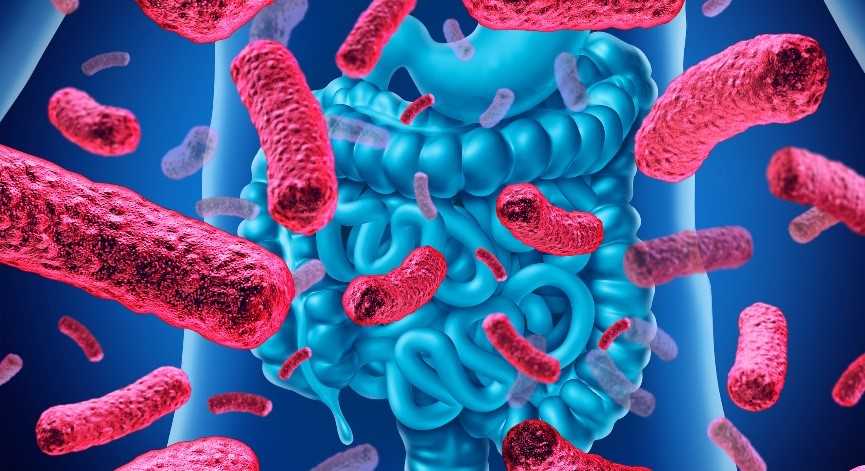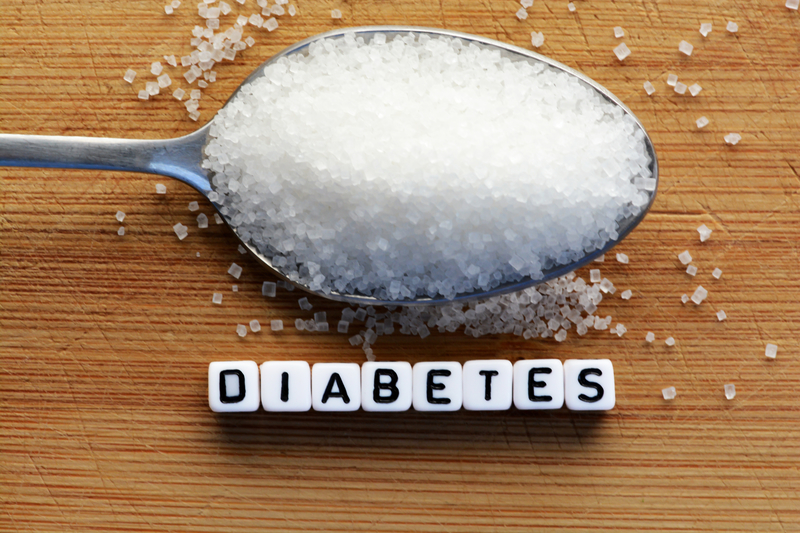Connie: Dear friends, thank you for tuning in to our program this Saturday evening. Today, we again invited our old friend, Dr. Hofstadter, to enlighten us with his knowledge of prebiotics. Dr. Hofstadter, thank you for joining us. It’s great to see you again.
Dr. Hofstadter: Thank you for inviting me, Connie. It’s great to see you too. Hello everyone.
Connie: In the previous program, we talked about the types and sources of prebiotics. Various indigestible oligosaccharides, such as lactulose, inulin-type fructans, and galactooligosaccharides are potential candidates for prebiotics. Among all inulin types, galactooligosaccharides and fructooligosaccharides are the most commonly used because they satisfy the basis of prebiotics. In addition, resistant starch is very important for enhancing gastrointestinal function. It can be expected that different types of prebiotics have different therapeutic effects. In today’s program, we will focus on prebiotics’ various therapeutic effects. Why don’t we start from some overview of prebiotics?
Dr. Hofstadter: Sounds good. It is well known that prebiotics has a variety of clinical applications and play an important role in the treatment of various diseases. Most prebiotics and their derivatives are selected based on their potential to stimulate the growth and activity of probiotic flora. When taken orally, prebiotics can reach the intestine and protect the epithelial wall of the digestive tract. When taken prebiotics, most of them tend to form short-chain fatty acids, resulting in lower pH, inhibiting the growth of pathogenic microorganisms, regulating metabolism, and promoting mineral absorption. Based on their mechanism of action, prebiotics has produced various preventive and therapeutic effects on serious human diseases such as diarrhea, intestinal syndrome, cancer, bacterial infection, diabetes, and obesity. In addition to the above effects, it can also improve the immunity and mineral absorption of the host.
Connie: After all these episodes discussing prebiotics, I’m still amazed at their surprisingly many benefits to human health. Can you elaborate more on their effect of enhancing intestinal function?
Dr. Hofstadter: No problem. Supplementing prebiotics in the human body can regulate intestinal flora. What I mean by ‘regulate’ is that they not only can stimulate protective bacteria, such as bifidobacteria and lactobacilli, but they can also inhibit pathogenic bacteria in the intestines. Prebiotics can enhance the immune response and absorption capacity of the digestive tract, and promote the proliferation and normal function of microorganisms.
Connie: Do you know any specific intestinal diseases that prebiotics are good for?
Dr. Hofstadter: Various fortified probiotic preparations have been evaluated for the treatment of gastrointestinal infections such as Crohn’s disease, diarrhea, constipation, irritable bowel syndrome, lactose intolerance, ulcerative colitis, and traveler’s diarrhea. All of the above infections are gastrointestinal infections that cause serious health issues.
Connie: There are many traditional methods that can be used to treat gastrointestinal diseases. Why do people pay more attention to prebiotics?
Dr. Hofstadter: That’s a great question. Traditional treatment methods, such as taking antibiotics and antispasmodics, can cause various health problems. In other words, the side effects of traditional treatment methods can be serious. But in contrast, various in vivo studies have shown that prebiotics such as isomalto-oligosaccharides has the potential to regulate the intestinal microflora without causing damage to the GI tract.
Connie: Low side effects definitely make prebiotics a more attractive option. So, how do prebiotics regulate immune effects?
Dr. Hofstadter: Prebiotic play an important role in stimulating the immune system and enhancing the immune response of the host by regulating the expression of cytokines. The increase in the number of protective microorganisms increases their competition with pathogenic bacteria by forming antibacterial compounds and short-chain fatty acids, thereby creating an unfavorable environment for pathogens.
Connie: I heard that some in vitro and in vivo studies have confirmed the boosting effect of prebiotics on the host immune system?
Dr. Hofstadter: That’s right. For example, the mixture of inulin, fructo-oligosaccharide, and xylooligosaccharides can enhance the inflammatory response of food allergies and the cell-mediated immune response. Similarly, fructo-oligosaccharide in the host increases the levels of protein, interleukin, and tumor necrosis factor-alpha.
Connie: It sounds great. We know that cancer is the proliferation and growth of abnormal cells and is considered to be the main cause of death in many countries. Colon cancer is a common malignant tumor of the digestive tract that occurs in the colon. Colorectal cancer ranks third among the most common malignancies, which can lead to metastatic tumors. You mentioned that prebiotics can reduce the risk of colon cancer in the host. What is the reason behind that?
Dr. Hofstadter: We know that the existing cancer chemotherapy and radiotherapy methods will impair the patient’s immune function, thereby making the situation more serious. In contrast, the combined application of live microorganisms and prebiotics, which are synbiotics, has shown the ability to prevent cancer by forming metabolites such as butyrate. Galacto-oligosaccharides are fermented to form butyric acid, which can reduce colonic cell migration and induce cell apoptosis. It is well known that it can also stimulate the expression of enzymes required to inhibit carcinogens. Clinical studies have demonstrated the potential of synbiotics in reducing the rate of proliferation, inflammation, and the use of antibiotics to prevent the incidence of cancer.
Connie: In recent years, the absorption of minerals and nutrients by prebiotic therapy has attracted great attention due to its enhanced effect. Bioavailability refers to the speed and extent to which the drug in the preparation is absorbed into the human circulation. What is the relationship between bioavailability, mineral absorption, and prebiotics?
Dr. Hofstadter: You must know that micronutrients such as magnesium, potassium, calcium, and iron are necessary for the metabolism and normal functioning of the body’s system. There are many known mechanisms to promote the bioavailability and absorption of nutrients in the body. For example, single-chain fatty acids lower the pH of the colon, thereby increasing the solubility and exchange mechanism of nutrients. Prebiotics like galacto-oligosaccharides, Inulin and fructo-oligosaccharide can promote the intake of magnesium and calcium to improve bone metabolism.
Connie: That makes sense. I’ve seen reports that elevated levels of low-density lipoprotein and blood cholesterol increase the risk of coronary heart disease. As a functional food, how do prebiotics regulate lipid metabolism?
Dr. Hofstadter: So since we know that food can regulate fats and lipids in the body, such as cholesterol and triglycerides, people become more interested in the development of food. The lactic acid bacteria in the host can absorb cholesterol and lower cholesterol levels. In addition, prebiotics like fructo-oligosaccharides can reduce the synthesis of triglycerides in the body. Intake of probiotic dietary fiber can reduce low-density lipoprotein and inflammatory factors, increase the concentration of high-density lipoprotein and ferulic acid, thereby reducing the risk of cardiovascular disease and obesity.
Connie: It seems that prebiotics have lots of potential in treating cardiovascular diseases. How does prebiotics reduce the risk of allergic reactions such as allergic dermatitis?
Dr. Hofstadter: Prebiotics reduce the risk of skin allergies and infections by metabolizing aromatic amino acids. The metabolites produced are phenol and short-chain fatty acids. According to reports, in experimental models, galactooligosaccharides can reduce skin pigmentation. Therefore, it can be used as a source of nutrition for skincare products. A clinical trial confirmed the potential of prebiotics in skin infections. The report stated that a mixture of prebiotics can improve atopic dermatitis when supplemented with atopic dermatitis in children.
Connie: One of the most serious threats to human health at present is diabetes. I feel that the incidence of diabetes is getting higher and the scope is getting wider and wider. Can prebiotics reduce the risk of diabetes by regulating the concentration of glucose in the host’s blood?
Dr. Hofstadter: It is well known that prebiotics can affect insulin and glucose levels in the blood. There are many ways to reduce the absorption of glucose into the blood. For example, the formation of short-chain fatty acids, the delay of gastric emptying, and the reduction of intestinal transit time. Probiotic fermentation products, such as propionate, can reduce gluconeogenesis, promote glycolysis, and stimulate glucose-regulating hormones. In this way, the goal of optimizing the host’s insulin and glucose levels can be achieved.
Connie: That’s reassuring to hear. Among all functional foods, prebiotics are considered to have great potential. They have shown many clinical applications, such as improving intestinal health, immune system and cardiovascular system. But it stands to reason that there is no perfect thing. So, what is the problem with prebiotics?
Dr. Hofstadter: Indeed, various prebiotic products attract the health care product market with their potential health benefits. However, the main problem with prebiotics is their effectiveness, toxicity, and safety. Inulin, fructo-oligosaccharides and xylo-oligosaccharide are extracted from the edible parts of plants and are also present in traditional foods, so they can be presumed to be non-toxic. Nevertheless, safety issues still need to be resolved, and these issues lack much-needed clinical trials and efficacy studies.
Connie: That makes sense. We will need more studies to confirm their safety. What are the safety aspects of choosing a compound as safe prebiotics?
Dr. Hofstadter: First, the active ingredients of prebiotics should be fully characterized in terms of structure, source, composition and concentration. Second, prebiotics should be harmless to the host and should not interfere with housekeeping metabolic activities.
Connie: Is the dosage of prebiotics given also a matter of concern?
Dr. Hofstadter: Certainly. Giving the optimal dose of prebiotics helps to stimulate the intestinal microflora, but excessive prebiotics may cause gastrointestinal diseases.
Connie: In this century when many diseases have eroded mankind, prebiotics have made great contributions to the prevention and treatment of diseases. As you said, prebiotics have various preventive and therapeutic effects on serious human diseases such as diarrhea, intestinal syndrome, cancer, bacterial infection, diabetes and obesity. Their ability to improve the host’s immunity and mineral absorption is an additional benefit to humans. I believe that with the in-depth study of prebiotics by scientists, humans will soon enter an era free of diseases. That’s it for this episode. Thanks, Dr. Hofstadter, for being here. And thanks, everyone, for listening. We will continue our discussion on prebiotics in the next episode. See you then!
Dr. Hofstadter: Thanks everyone. I hope we will see you next time.
